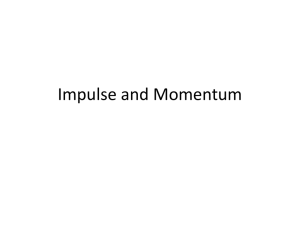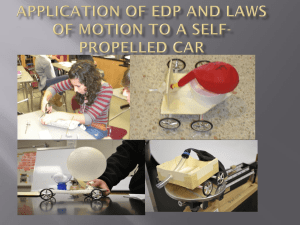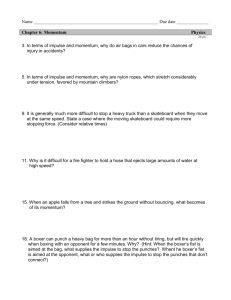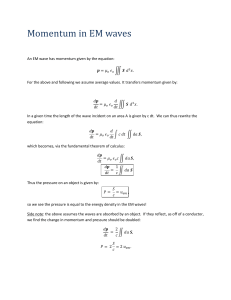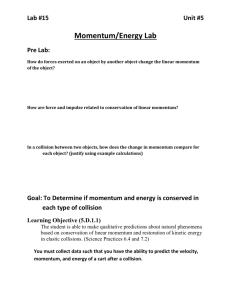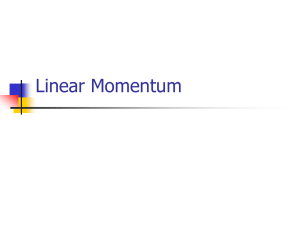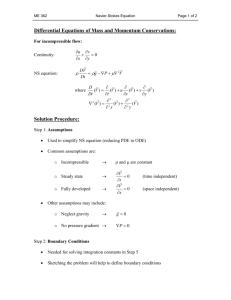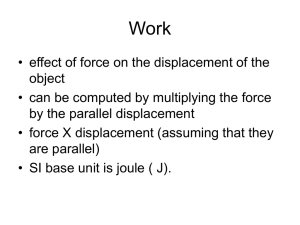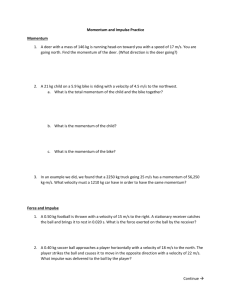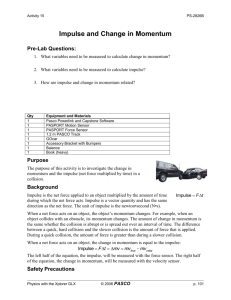conceptual questions key
advertisement
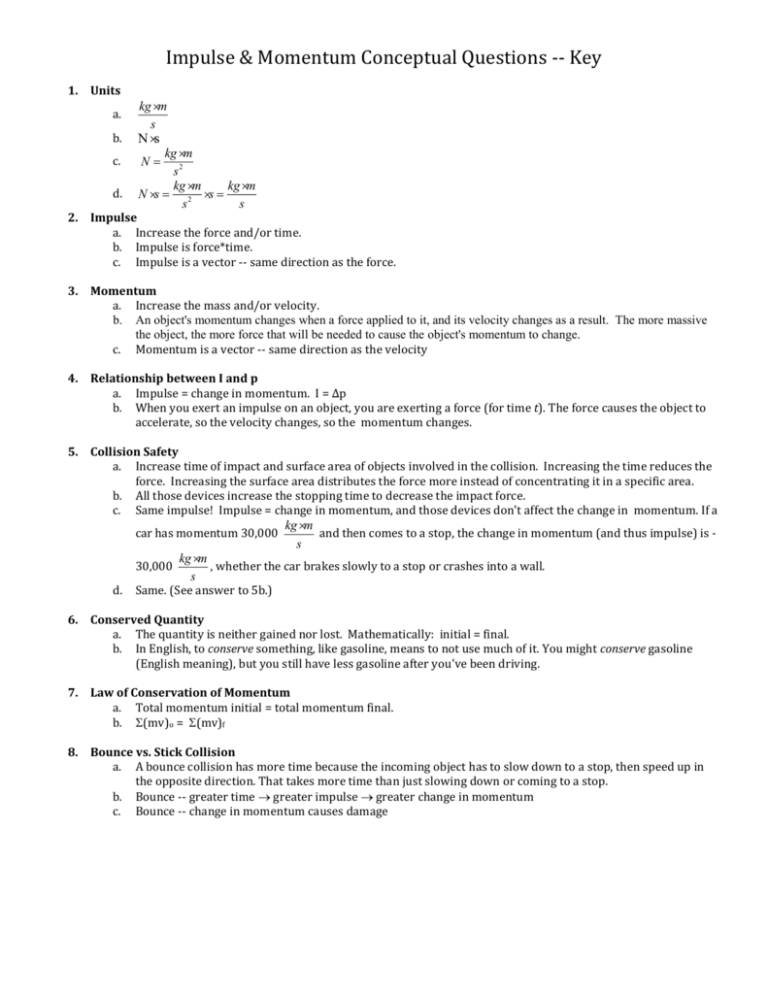
Impulse & Momentum Conceptual Questions -- Key 1. Units a. kg × m s b. N ×s c. N= d. kg × m s2 kg × m kg × m N ×s = 2 ×s = s s 2. Impulse a. Increase the force and/or time. b. Impulse is force*time. c. Impulse is a vector -- same direction as the force. 3. Momentum a. Increase the mass and/or velocity. b. An object's momentum changes when a force applied to it, and its velocity changes as a result. The more massive the object, the more force that will be needed to cause the object's momentum to change. c. Momentum is a vector -- same direction as the velocity 4. Relationship between I and p a. Impulse = change in momentum. I = ∆p b. When you exert an impulse on an object, you are exerting a force (for time t). The force causes the object to accelerate, so the velocity changes, so the momentum changes. 5. Collision Safety a. Increase time of impact and surface area of objects involved in the collision. Increasing the time reduces the force. Increasing the surface area distributes the force more instead of concentrating it in a specific area. b. All those devices increase the stopping time to decrease the impact force. c. Same impulse! Impulse = change in momentum, and those devices don't affect the change in momentum. If a kg × m car has momentum 30,000 and then comes to a stop, the change in momentum (and thus impulse) is s kg × m 30,000 , whether the car brakes slowly to a stop or crashes into a wall. s d. Same. (See answer to 5b.) 6. Conserved Quantity a. The quantity is neither gained nor lost. Mathematically: initial = final. b. In English, to conserve something, like gasoline, means to not use much of it. You might conserve gasoline (English meaning), but you still have less gasoline after you've been driving. 7. Law of Conservation of Momentum a. Total momentum initial = total momentum final. b. (mv)o = (mv)f 8. Bounce vs. Stick Collision a. A bounce collision has more time because the incoming object has to slow down to a stop, then speed up in the opposite direction. That takes more time than just slowing down or coming to a stop. b. Bounce -- greater time greater impulse greater change in momentum c. Bounce -- change in momentum causes damage
